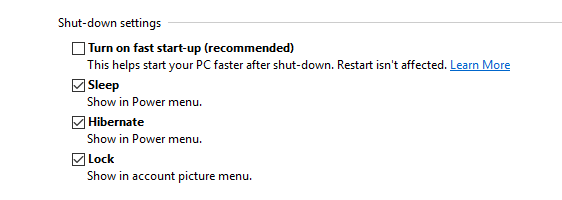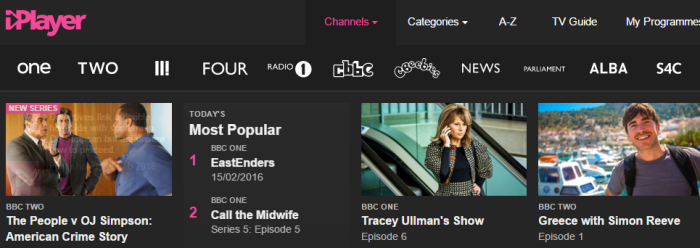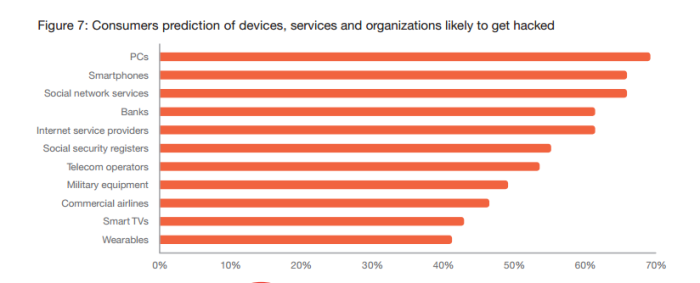Making old TV new again
The challenge of how to bring an older programme into the modern era and make it appealing and relevant to new viewers is one I occasionally set for media production students.
Channel 4 have created this excellent example from June 2020, for Buffy the Vampire Slayer.
The series ran from 1997 until 2003, and the E4 promo gives a nod to the original time period with a 1999 Britney Spears hit.
Channel 4 have some of the most creative television promos in my humble opinion, my all-time favourite is a promo for Ugly Betty from the late 2000s.
The speed of change – slower than you might think
Not everything moves at the speed of the most excited person.
My EHQ (eyebrow height quotient) started to nudge the top of the scale this week when I read the results of a survey from a Norwegian media technology company.
“82% believe that cellular networks like 5G will eventually replace traditional broadcast distribution” says the headline, EHQ shows an average response. It was the second line which really got the needle moving reported in TVB Europe as
“A third of those who took part in the survey said they expect the change to happen over the next 1-2 years”
Wow.
The company doesn’t state how many responded to the survey (it could be 16 people, of which 6 were on a 5G sugar-high) but it made me look at the source material, which says something slightly different:
‘… over a third (37%) of these respondents expecting this to begin happening within 1 to 2 years’ – italics are my own emphasis.
Suddenly we have a very different picture.
The problem here is what is ‘traditional broadcast’? Apart from analogue radio, broadcast distribution today is transmitters radiating digits on defined radio spectrum. 5G seems little different, just many more smaller transmitters doing it.
This will be as much a social change as a technological one, and social change is slow.
Do I expect 5G to eventually replace traditional broadcast distribution? No. I expect that a combination of technologies will augment it and meld into it.
Do I expect a change over 1-2 years? Absolutely not. A complete re-build of any sizeable national media distribution system is going to take much, much longer than that. Just having to supply and install the millions of new set-top boxes might take a decade. And then of course they will all be out-of-date again.
Modern digital broadcast distribution is still very efficient. Transmitters like Crystal Palace and Emley Moor can send vast amounts of information to millions of people at once. Since TV transmission switched to digital, there have been significant power efficiencies.
Can other technologies do that? Yes. Can they do it as efficiently, in terms of power use and the manufacturing emissions of all those new set-top boxes and 5G transceivers?
Not yet I suspect.
Windows is trying to be helpful by cutting off my internet access
Sometimes I just want my computer to stop being helpful and do what I tell it!
Because I like to think I know a little about how computers work, I like to think when I ask software to do a specific function, or do something in a particular way it will do what I say. Not so always with Windows 10.
I’ve recently installed the ‘Windows 10 Fall Creators Update‘ (and I’m now ready to create falls, whatever they are). As part of this update Windows has clearly made some tweaks to my system. The result is that it I have no Wifi.
In general I don’t mind these tweaks, many will find them helpful particularly if they optimise under-the-hood functions which most users would not normally bother with because of the complexity.
But … I really wish there was a proper detailed logfile (that I can find!) of what these are.
One of the ‘updates’ appears to be that it defaults ‘Fast start-up’ mode to on, even if the user has turned it off previously. This is extremely frustrating, and made more so because the update does not make clear it has made these changes.
Basically ‘Fast start-up’ shuts down your machine properly, but then brings it back as it you had used Hibernation mode. It is probably helpful for many users, but there is a reason I turned it off years ago: The hardware I’m using is close to ten years old and works better with a cold start-up largely because the onboard wifi card will not start properly if it is brought into use in a ‘wake-from-hibernation’ state. In other words, when the computer reboots, I no longer have an internet connection.
I have now re-discovered the setting and put it back in the position I want it.
Now stay like that!

Fast start-up. In my case, not recommended.
It’s in Control panel > Hardware and sound > Power options > System settings for those who want to investigate their own config, and a good explainer on what ‘Fast start-up’ actually does is here.
Top consumer trends from Ericsson #MyThoughts
I love documents based on prediction, because they are beautifully hard to disprove, after all anything might happen. I’ve just read Ericsson’s ConsumerLab report on the consumer trends of this year and it’s a fascinating look not into what scientists think is going to happen, but what the general public predict.
The problem with asking the (mainly non-science trained) general public about what they expect to happen in matters of science and technology is that they will always apply much shorter timescales to things than are generally realistic. I am possible only marginally more informed than the random sample, but here’s my reaction.
Ericsson says: Early adopters are less important
Absolutely. Innovation now happens so fast (because it has become much cheaper for people and companies to innovate) leading to so much choice, making it difficult to discern a consumer trend. This is because as soon as one product iteration has been released, it is just a few days before another spurt-of-the-new confuses the public all over again.
“Successful new products and services now reach the mass market in only a matter of years”
I think Ericsson are off with their timescales here.
With services particularly (I’m thinking software) this can actually happen in months. The report notices the increased speed of mass adoption ‘the network effect’, but consumers are becoming more fickle. The ever changing market is teaching us to be technology magpies and we flit from one new shiny thing to another. Today it’s a smart watch, before that, Flappy Bird.
” as the speed of technology adoption increases, mass-market use becomes the norm much quicker than before”
I sense a tremendous marketing opportunity for services which can appear to be exclusive, whilst still benefiting from the economies of scale of a very broad appeal product. Blackberry used to know what this was like. Remember when ‘important people’ had a Blackberry handset? It was a status symbol which thanks to a quirk of its messaging service became hugely popular with the younger crowd. But then it became uncool (because we are fickle) and the brand was tarnished at the same time. The exclusivity was gone.
TV companies definitely know what this is like, and it’s why a broadcaster like ITV has diversified into a clutch of sub-brands each known for a particular specialism. ITV2 for new and trendy, ITV3 for people who prefer the way television used to be.
The kids are watching video on the internet – Streaming Natives
I fail to see why this is still worth mentioning. Its so obvious when you compare with another market like, well a market. Would you prefer to shop at the single butcher, baker or grocer for the limited amount of time they are open, or would you prefer to go to a big supermarket and do everything at once and benefit from the increased choice, the lower prices and the longer opening hours?
People like television, kids particularly so. When I was in my teens, my mum was forever trying to get me to stop watching TV. I watch even more TV now than I did then, mostly because it’s so much more convenient (and because I don’t live with my mum anymore and she can’t tell me off).
AI ends the screen age
No it won’t. At least not in the 5 year term predicted. First we will get more versatile screens that are bigger and that we can fold up in our pockets. As for talking to an artificial intelligent assistant. We already do that. Except we don’t. When Siri and her ilk appeared, my friends loved to experiment with it. They don’t do that anymore. (We are fickle).
Short instructions to AI systems seem to work much better. Telling my Echo speaker “Play BBC Radio 4” never gets old because I like listening to Radio 4.
50 percent of consumers think holographic screens will be mainstream within 5 years
Here’s that problem about the general public and timescales.
50 percent of consumers think holographic screens will be mainstream within 5 years? Really? This is a technology that has yet to see life outside a lab. I have my doubts that internet-connected light bulbs will be mainstream in 5 years, and you can buy those today!
Strangely, the one thing that the general public thinks the least good of the ideas is the one I think will massively take off. VR dating. What a time-saver for the initial sift of potential spouses to happen remotely! No more uncomfortable and expensive dinners with people who are obviously not a match.
55 percent of smartphone users believe that homes will have embedded sensors within 5 years
Hooray, something I believe will happen. However, given the speed it takes to build and replenish housing stock, I don’t see this becoming anything like mass market for another decade. In the meantime, we will have to cope with a competing bunch of home sensor systems that will harm early adoption, along with the threat that your home can be hacked.
65 percent of smartphone owners are interested in an emergency app, which would alert them in a crisis or disaster, and provide verified, rumor free information
Only 65%? I wonder what the rest wanted? This is clearly a new and necessary role for public service broadcasters. I see a renewed need for organisations like the EBU (aka Eurovision) to provide links between trustworthy newsrooms and maybe have direct access into their various apps to provide and share exactly this kind of infomation.
Everything gets hacked
It’s fascinating that people have caught onto the probability that consumer electronics security is an if not when event. I know many professionals who haven’t worked that one out. Although again, the thing they rate as least likely, wearables, I rate the opposite.
I wonder if people are actually rating the effect a hack might have on them and seeing wearables as immaterial. Either way, they are wrong.
One statistic stands out to me: 43 percent think we will be required to identify ourselves whenever we use the internet within the next 3 years. The creeping surveillance state propaganda appears to be working.
In summarising, the report (like many) quotes William Gibson: the future is already here. Though it suggests that future is much more evenly distributed this time round. I am not so sure.
The things that still matter, are still the things which require the most effort, or the most money, or both: A breakthrough medicine for HIV, replacements for the ticking timebomb of antibiotics, a reusable rocket, the self driving car or what we end up doing with our rubbish.
Data security in newsrooms is a massive unknown – the worst thing we can do is ignore it
There are two types of newsroom. Those that have lost data, and those that will.
Last week I was at Eurovision’s news conference – NewsXchange. It’s a fun and thoughtful annual gathering of leaders from (mostly) public service broadcast newsrooms across (mostly) europe.
I produced a session about two currents threats to journalism as I see it. The first is that journalism is increasingly put into the same category as terrorism when it comes to government investigations. This has massive implications for protection of journalists’ sources. If we are unable to keep a secret, because terrorism legislation forces us to reveal it when asked by authorities, how can we expect a whistleblower to trust us with information which is absolutely in the public interest?
The second threat is that large media organisations are increasingly seen as a prestige target by hackers. One example: TV5 was taken off the air for around 18 hours earlier this year.
At the start of the session I asked the audience a set of questions about their news organisation and security of their data. They voted using personal push-button handsets. I want to share the results here as we didn’t have enough time in the session to analyse them in detail.
If you are relatively new to data security threats, they might shock you. Sadly, for the most part myself and the experts I had with me on the panel found some of the results all too predictable.
I should stress this is not a statistically accurate survey, it is simply meant to be an indication of the thoughts of the people in the room at the time.
VPN use: An easy one to start with, and I’m pleasantly surprised that over a third of people use a secure connection on their own computer. However the number of people effectively saying ‘I know I should, but I don’t’ is where I expected it to be.
Data safety away from base: I asked here specifically about how reporters treated any data-carrying equipment once it was out of the office. How well do they stick to the IT rules?
I was particularly interested in the results of option two, as it’s an indicator of the extent to which corporate IT policies get in the way of newsgathering workflows. In many cases side-stepping the rules temporarily in order to speed the story back to base is acceptable as long as you’ve assessed the risks well enough.
I wasn’t prepared for a full two-thirds of the voters either not knowing when their reporters might be taking risks with important data, or not knowing what procedures were even in place!
Mobiles: I’ve seen this on many occasions. A reporter can’t get their work phone to do what they need it to, so they use their own phone, and half the respondents do not think this is an issue! The danger here is that a personal mobile phone is far more likely to be a ‘leaky’ data device. For a start, what happens if it gets lost or stolen with contact details of anonymous sources on it?
To what extent are you expecting a data breach: I am glad to see that most people are realists. It is extremely hard to prevent attacks, what matters is how you prepare for one and what you do afterwards. (The data theft from UK phone company Talk Talk had occurred just a week before. It was the third such attack and the company head didn’t even know if the data was encrypted or not! Astonishing.)
How effective do you think your corporate systems are: At least 20 percent of the respondents have a false sense of security, half need to ask better questions of their IT chiefs. Only a third of those who pushed a button are ready to properly plan for the attacks that will certainly come.
A quick note to the results: I’m displaying the questions in the order they were asked, but I don’t know the total number of votes that were counted, and of the 180 or so people in the room, not all would have voted and not all might have voted for all the questions.
I always welcome insightful comments. If you know something which would add to our understanding of these results, please let everyone know.










